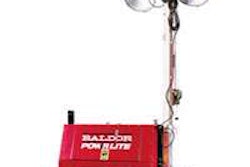The Obama administration is putting some contractors who work with the federal government on notice with two proposed changes in acquisition rules that address pass-through costs and award fees.
In the first case, which would amend the Federal Acquisition Regulation (FAR), the move is designed to cut back pass-through fees. In the second case rollovers would no longer be allowed with award fees. Both proposed changes to acquisition rules were released in notices in the Federal Register in October.
The interim rule announcement in the first case claims the change would “minimize excessive pass-through charges by contractors from subcontractors, or tiers of subcontractors, that add no or negligible value,” and that it would “ensure that neither a contractor nor a subcontractor receives indirect costs or profit/fee (i.e., pass-through charges) on work performed by a lower-tier subcontractor to which the higher-tier contractors or subcontractor adds no, or negligible, value.”
To allow agencies to determine if pass-through charges are excessive, the proposed rule change “includes a solicitation provision and a contract clause requiring offerors and contractors to identify the percentage of work that will be subcontracted, and when subcontract costs will exceed 70 percent of the total cost of work to be performed, to provide information on indirect costs and profit/fee and value added with regard to the subcontractor work.”
Seventy percent was selected as the threshold for this requirement because it represents a “substantial amount” of contracting according to the notice.
The notice says the “rule is intended to protect the interests of the Government when there appears to be an agreement with a contractor to perform the contract scope of the work, including managing subcontractors, then after award, the contractor subcontracts substantially all the effort without providing the value-added subcontract management functions that were expected.”
Any contractor deciding after being awarded a contract to subcontract more than 70 percent of the total costs of the work would have to both notify an agency’s contracting officer and guarantee added-value management would still be applied to the work.
In the second proposed change to FAR award fees remained tied closely to cost, schedule and technical performance criteria and would not be earned “if the contractor’s overall performance is judged to be below satisfactory.” The notice announces succinctly, “The prohibition of the use of the award fee rollover concept.” This would effectively end the practice whereby unearned fees from one evaluation period could be ‘rolled over’ and awarded in another.
“The Councils [The Civilian Agency Acquisition Council and the Defense Acquisition Regulations Council] believe ‘rollover’ diminishes the effectiveness of the award fee rating given for a specific evaluation period, since the unearned award fee could be earned by the contractor in a subsequent evaluation period,” said the notice
Award fees, most of which are mostly paid by the Defense, Homeland Security, Energy and Health and Human Services departments and NASA, are essentially contractor bonuses for superior cost, technical or schedule performance. Washington bureaucracy has becoming increasingly concerned that the fees are administered haphazardly and that there is insufficient evidence to prove that the fees are actually the reason for superior contractor performance which could be the result of external factors. v








